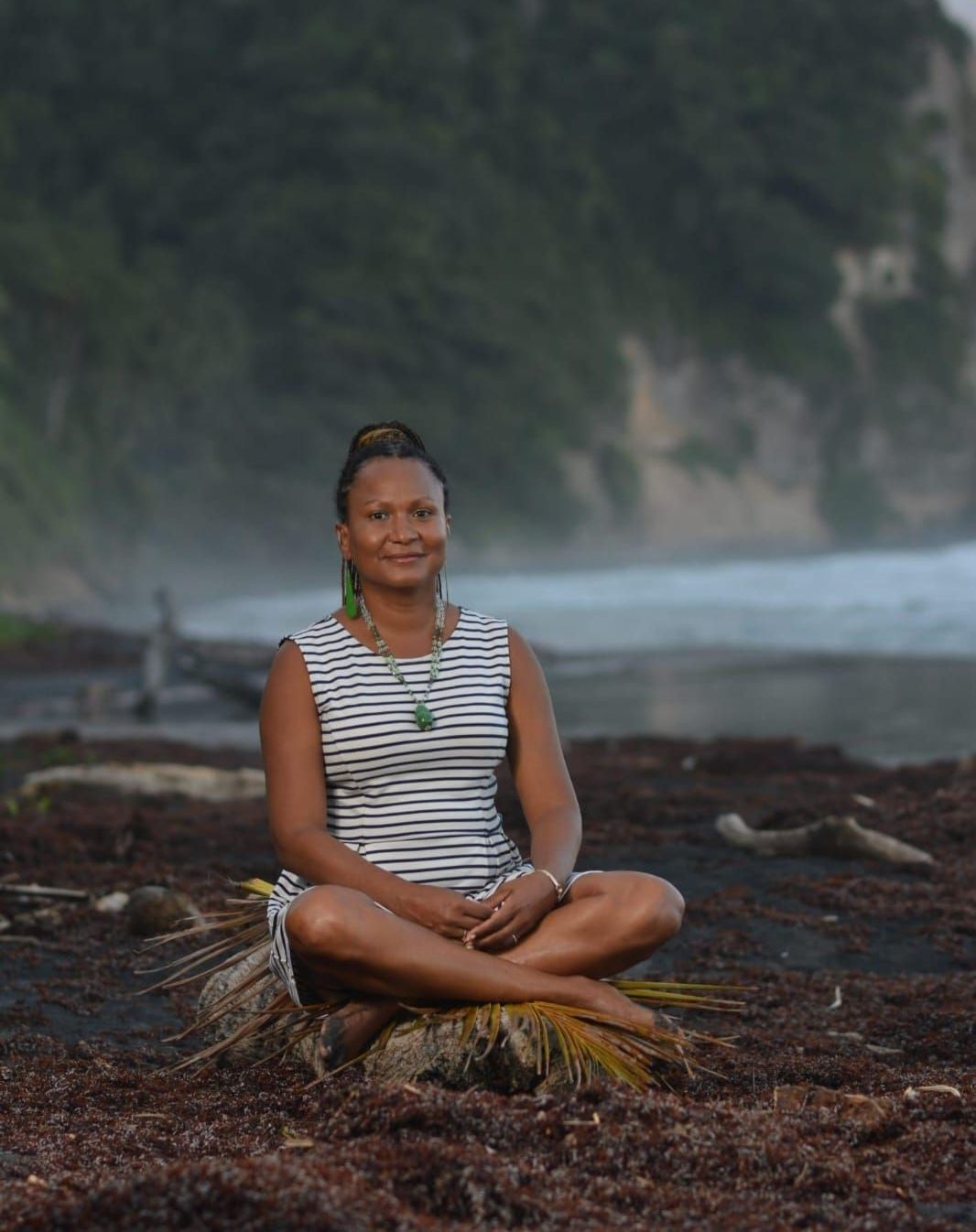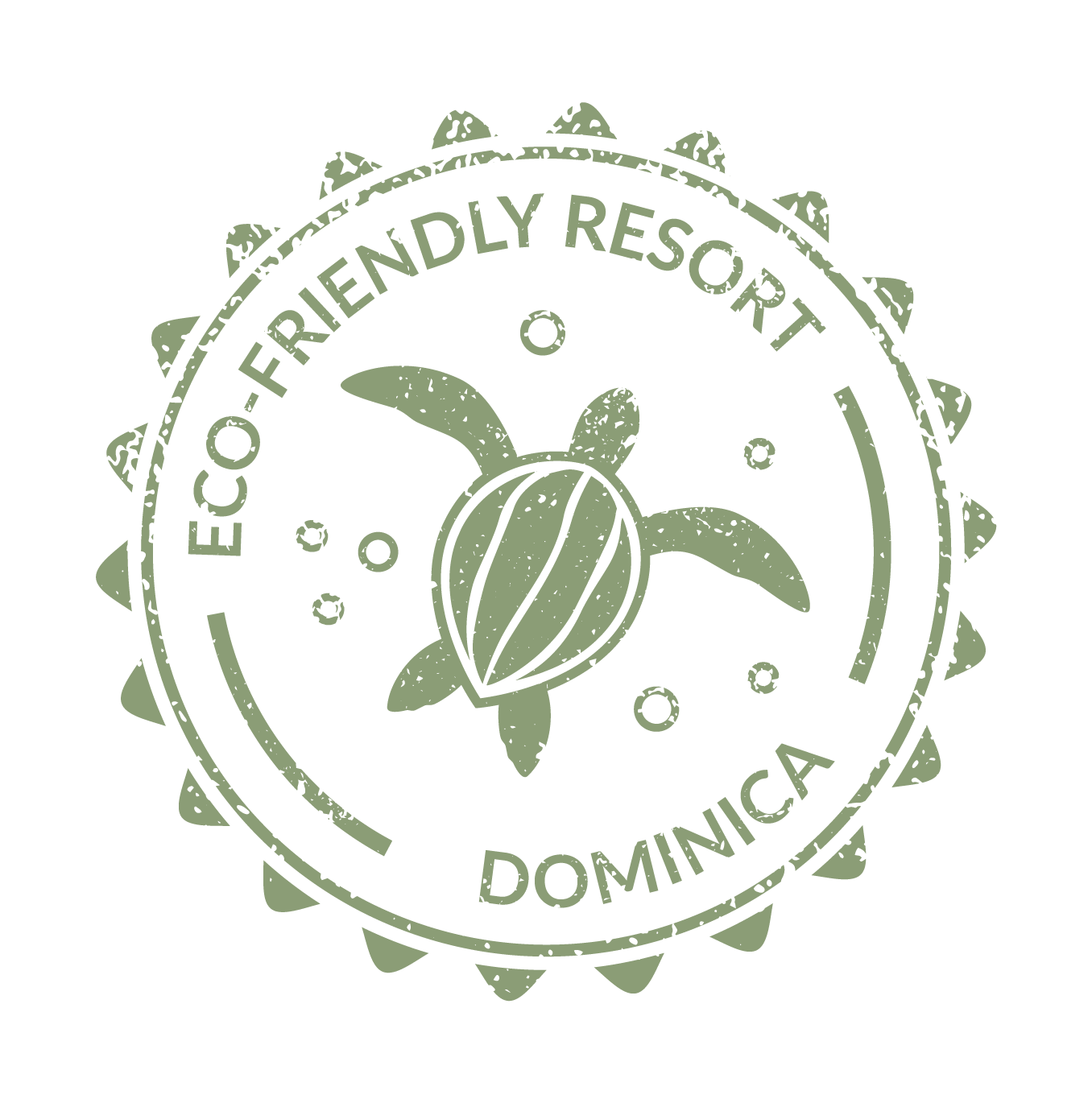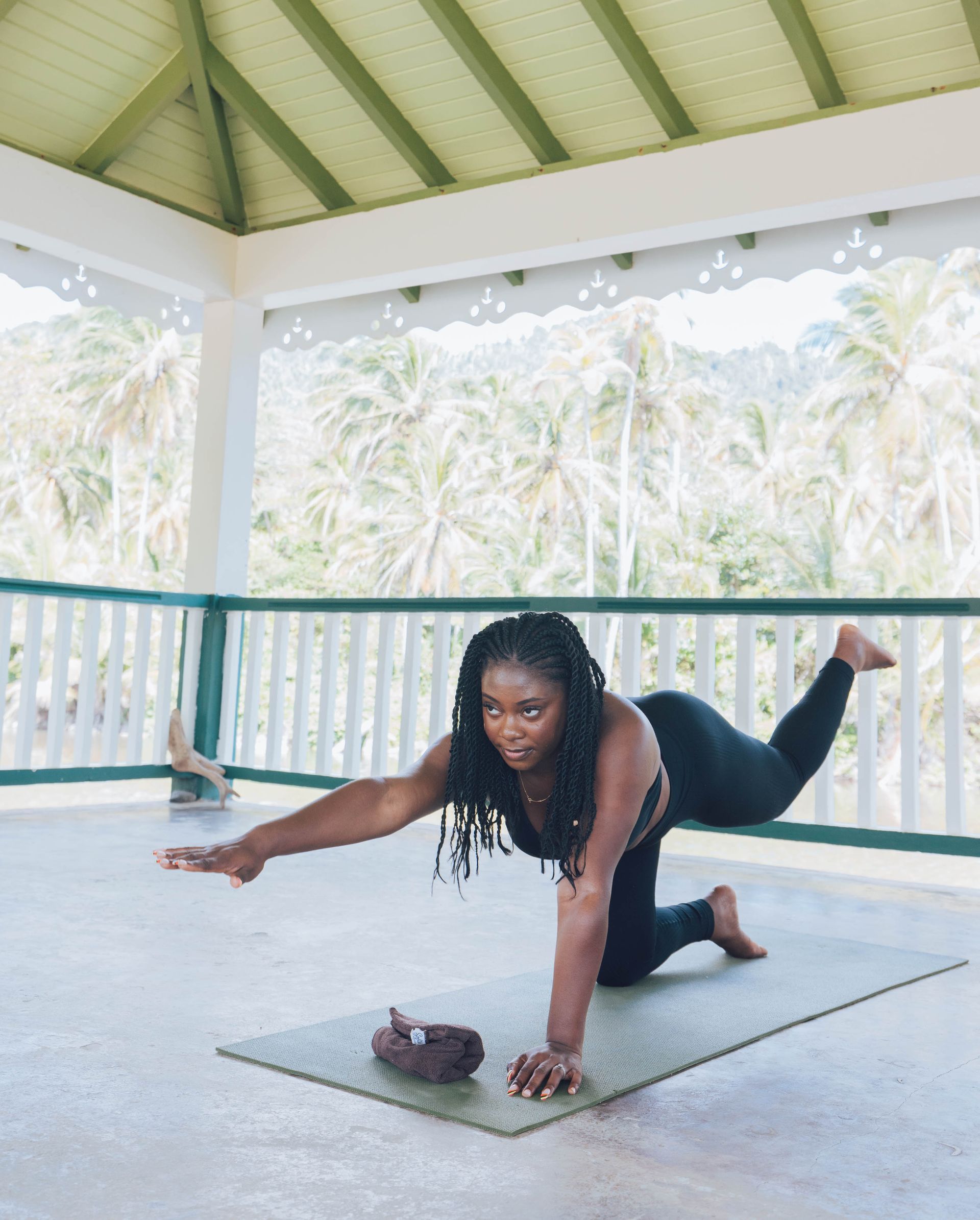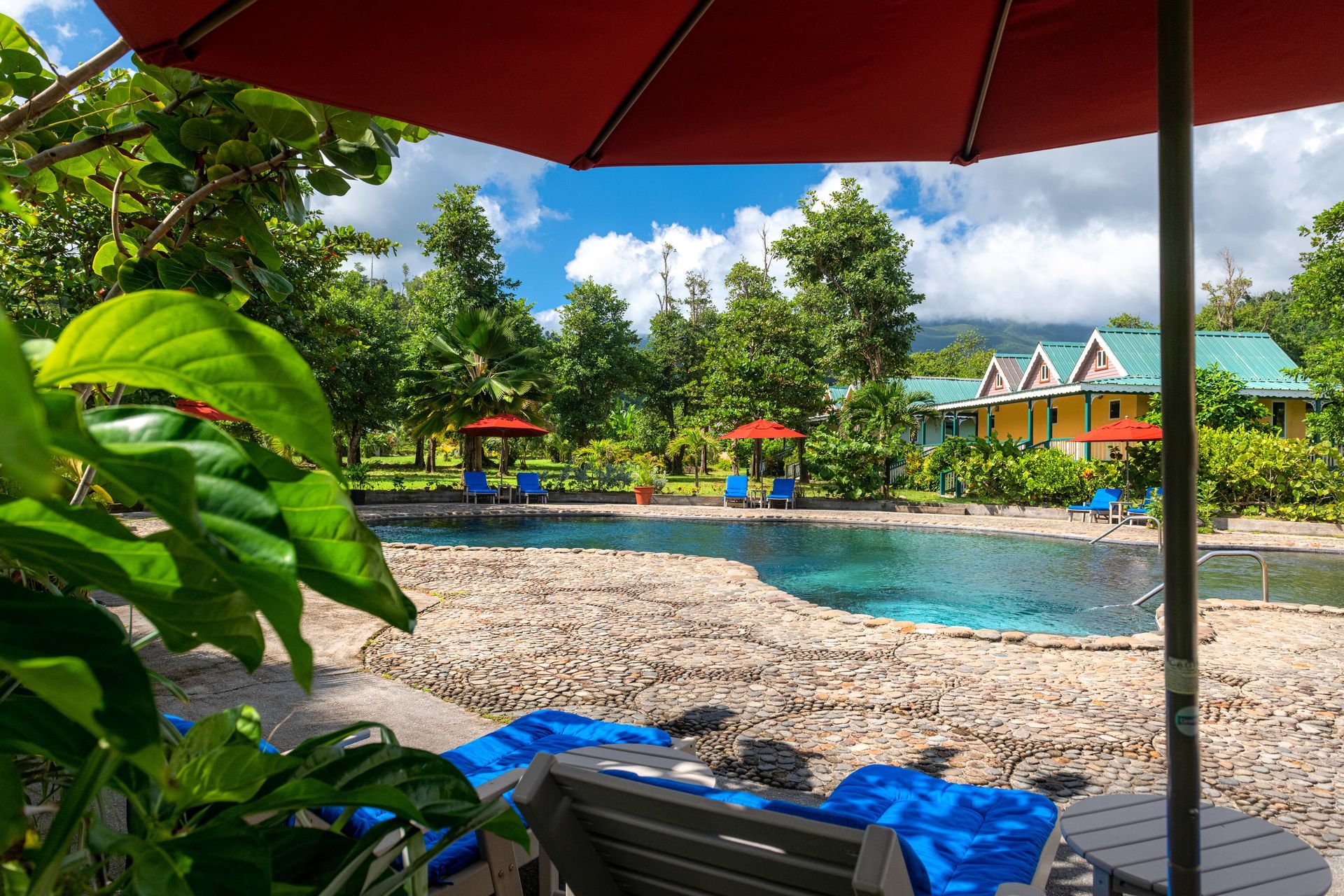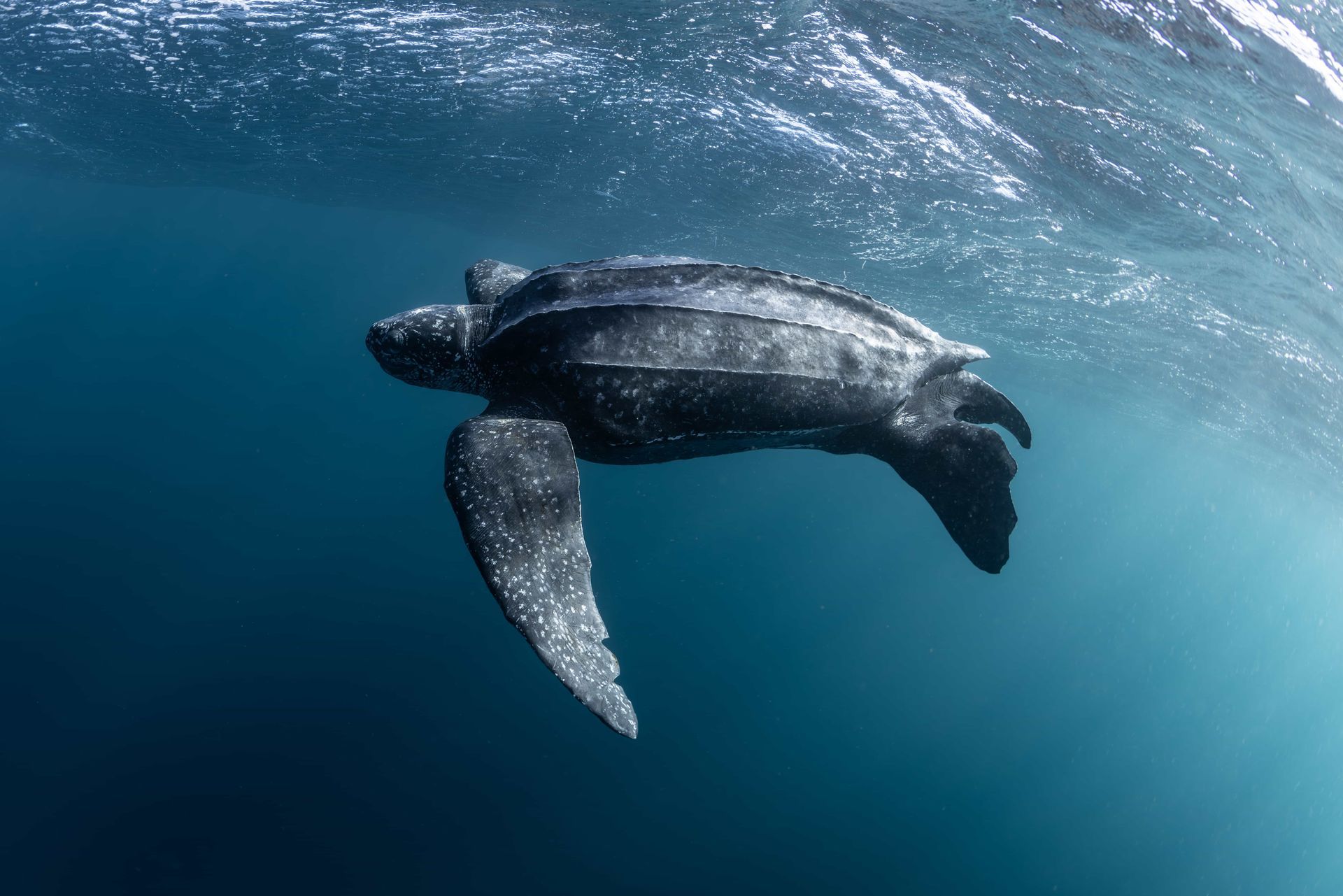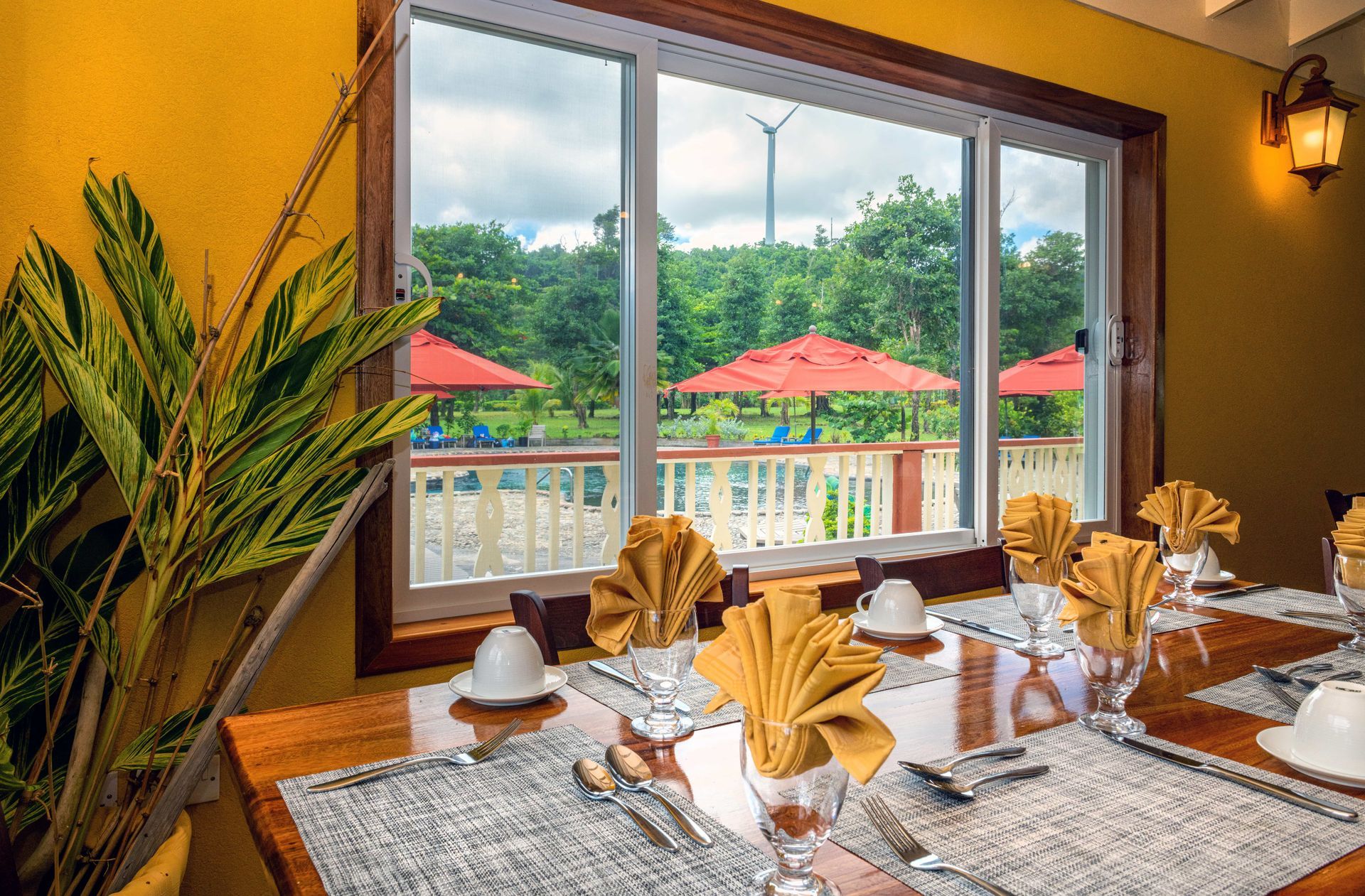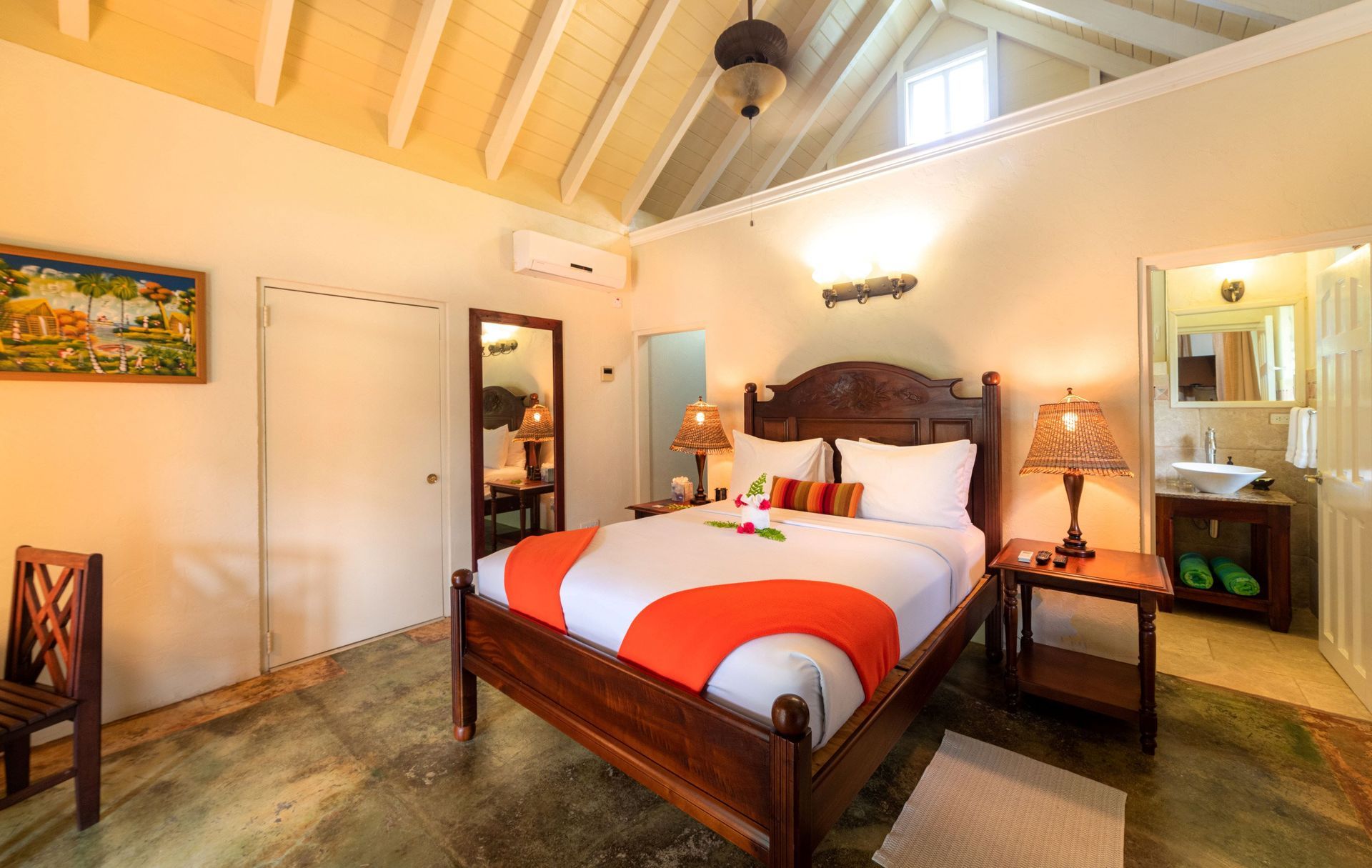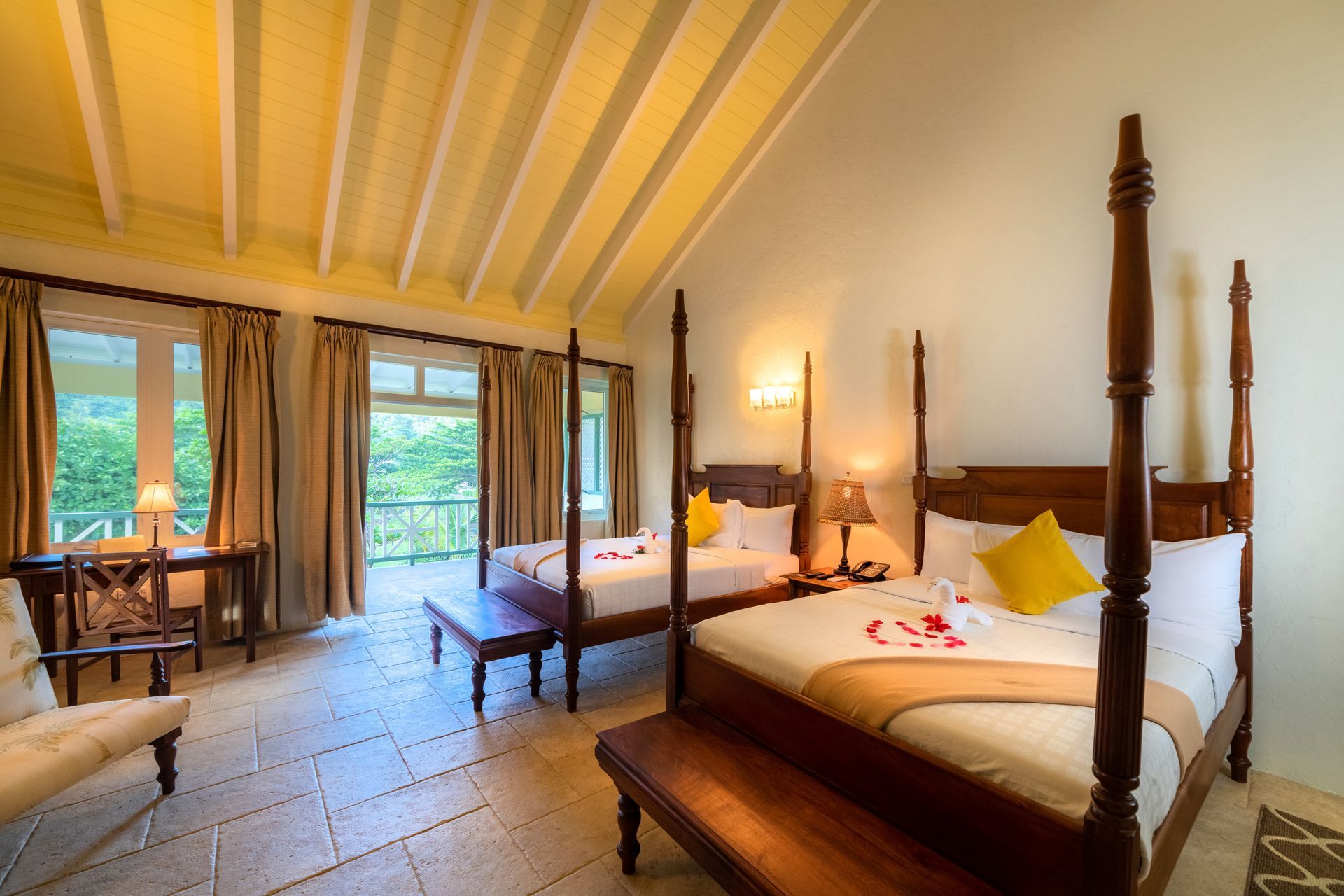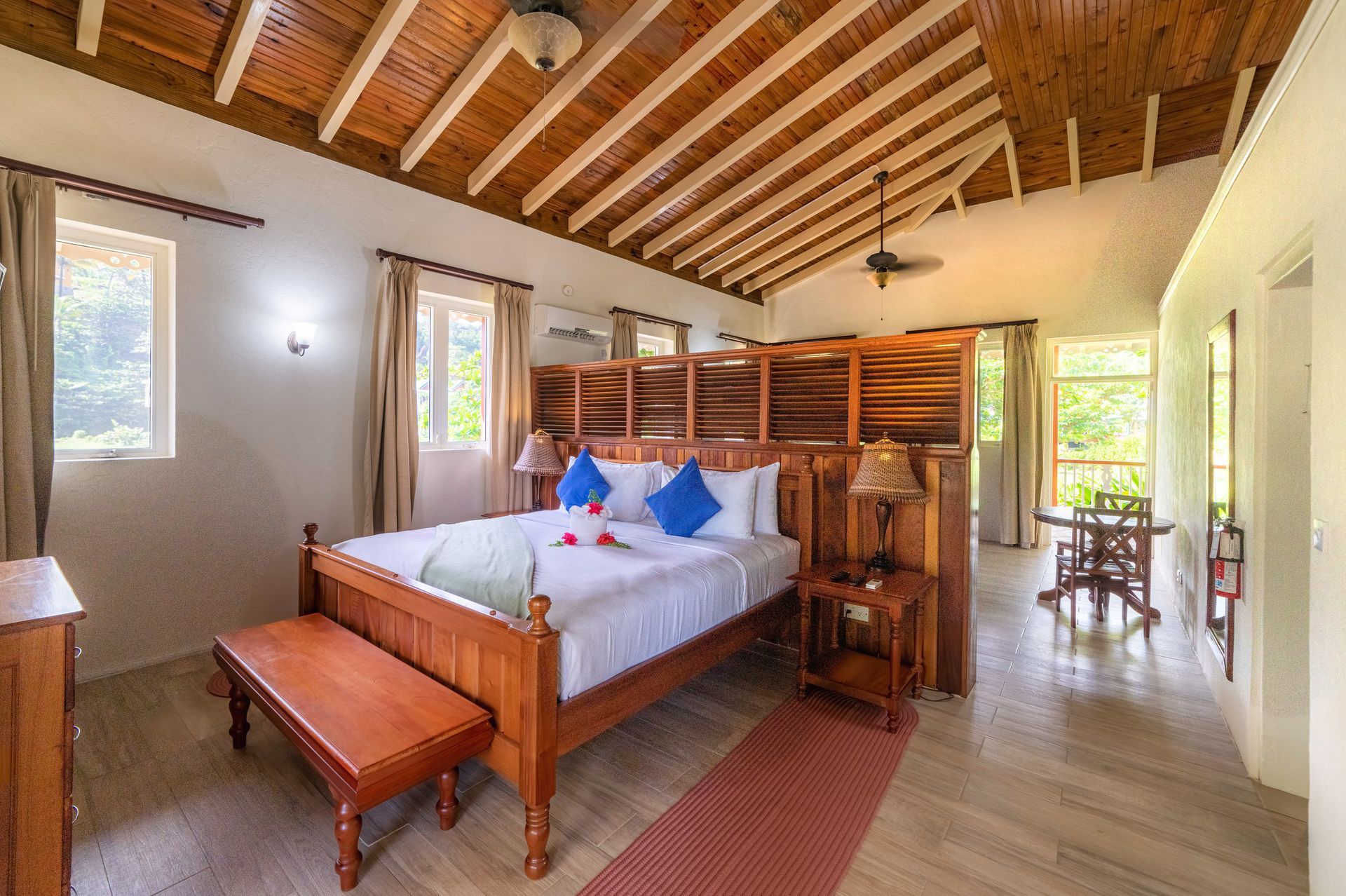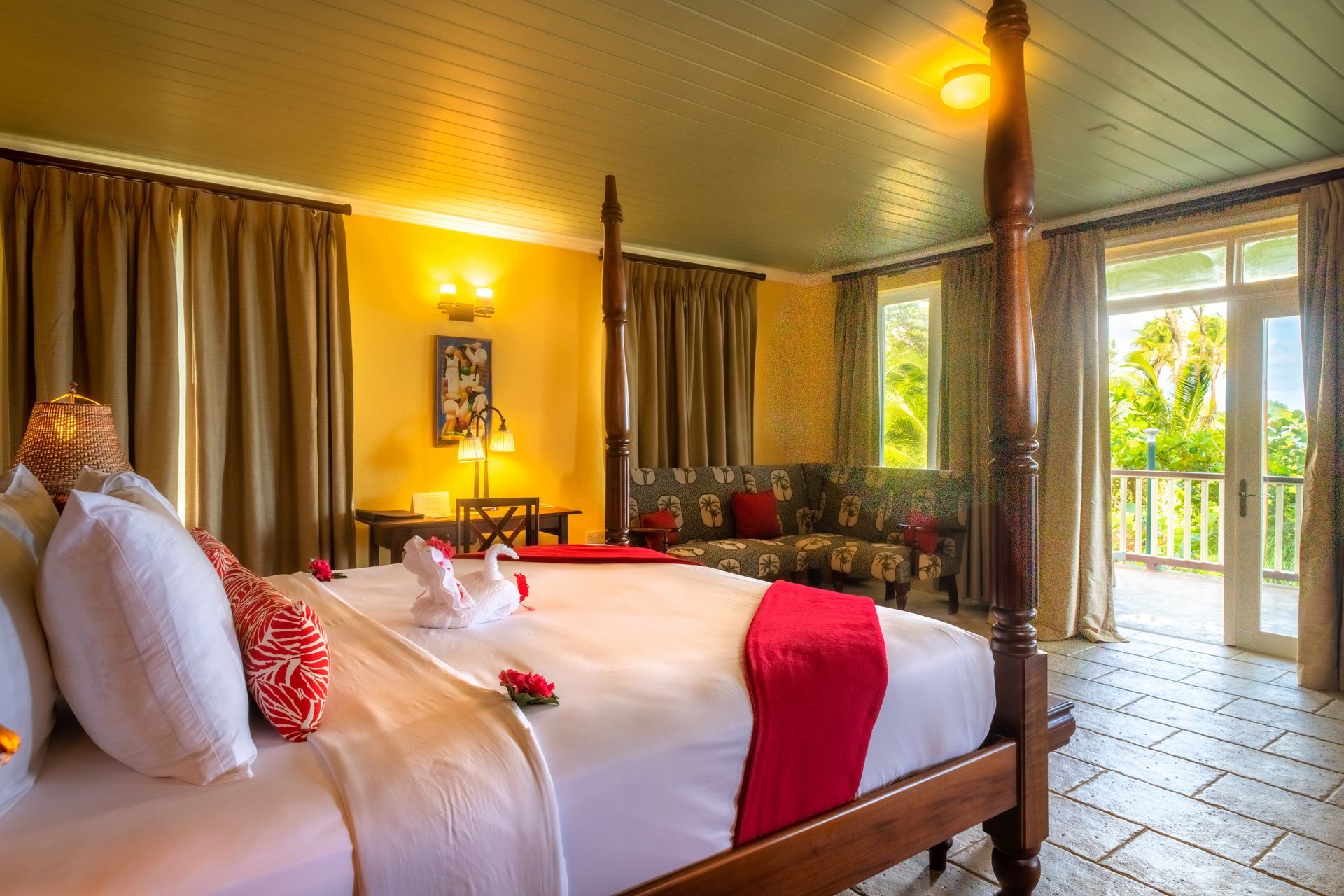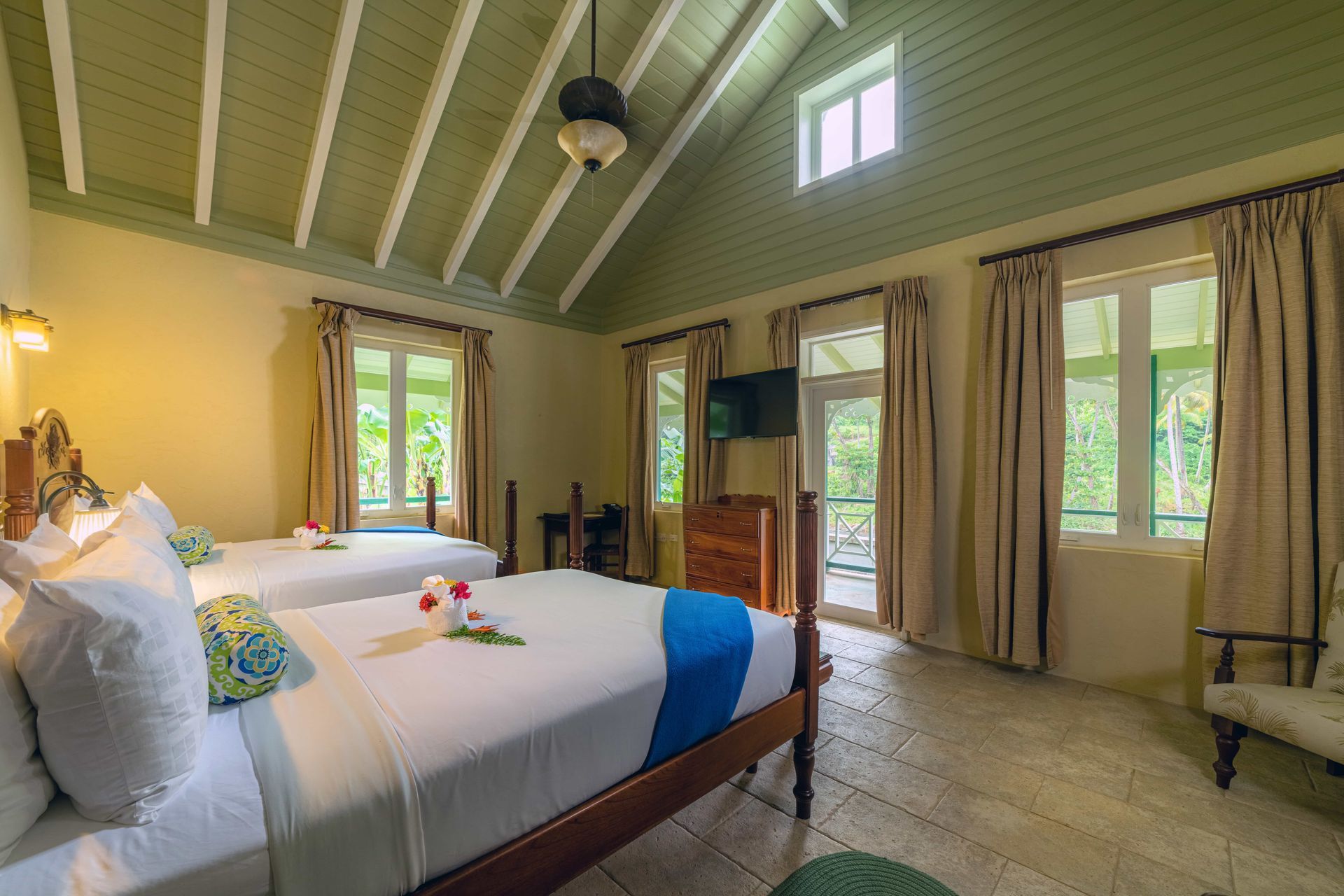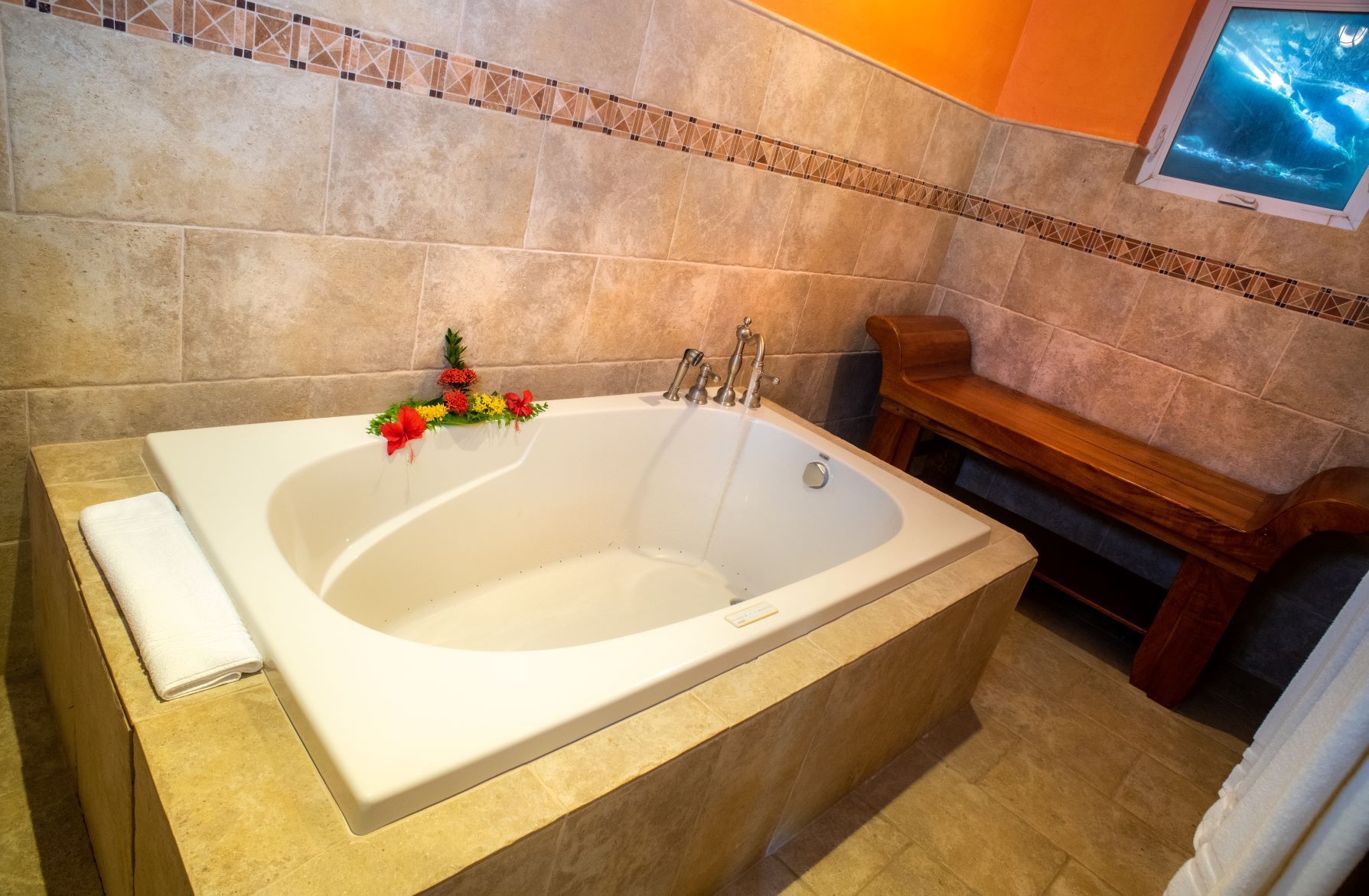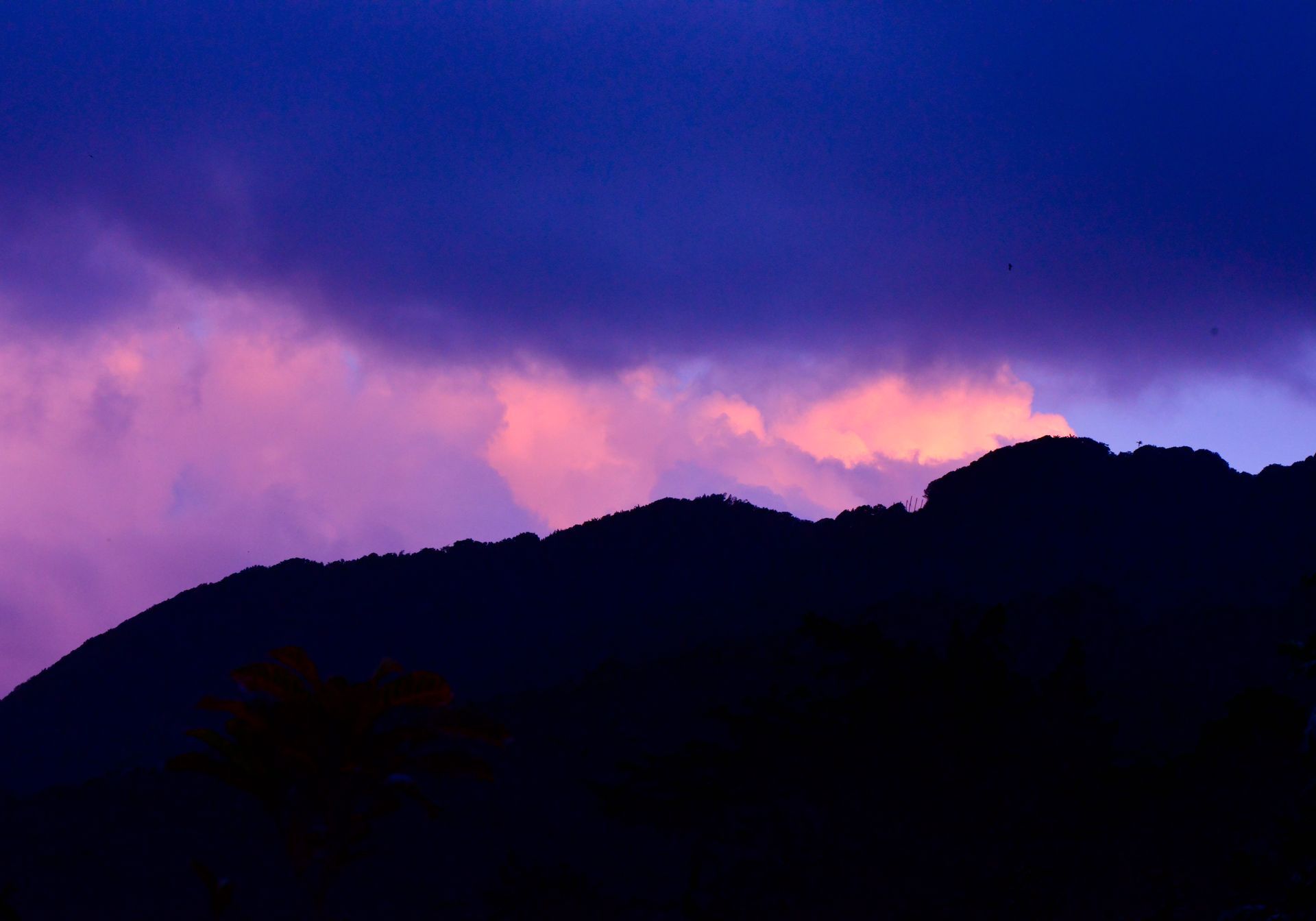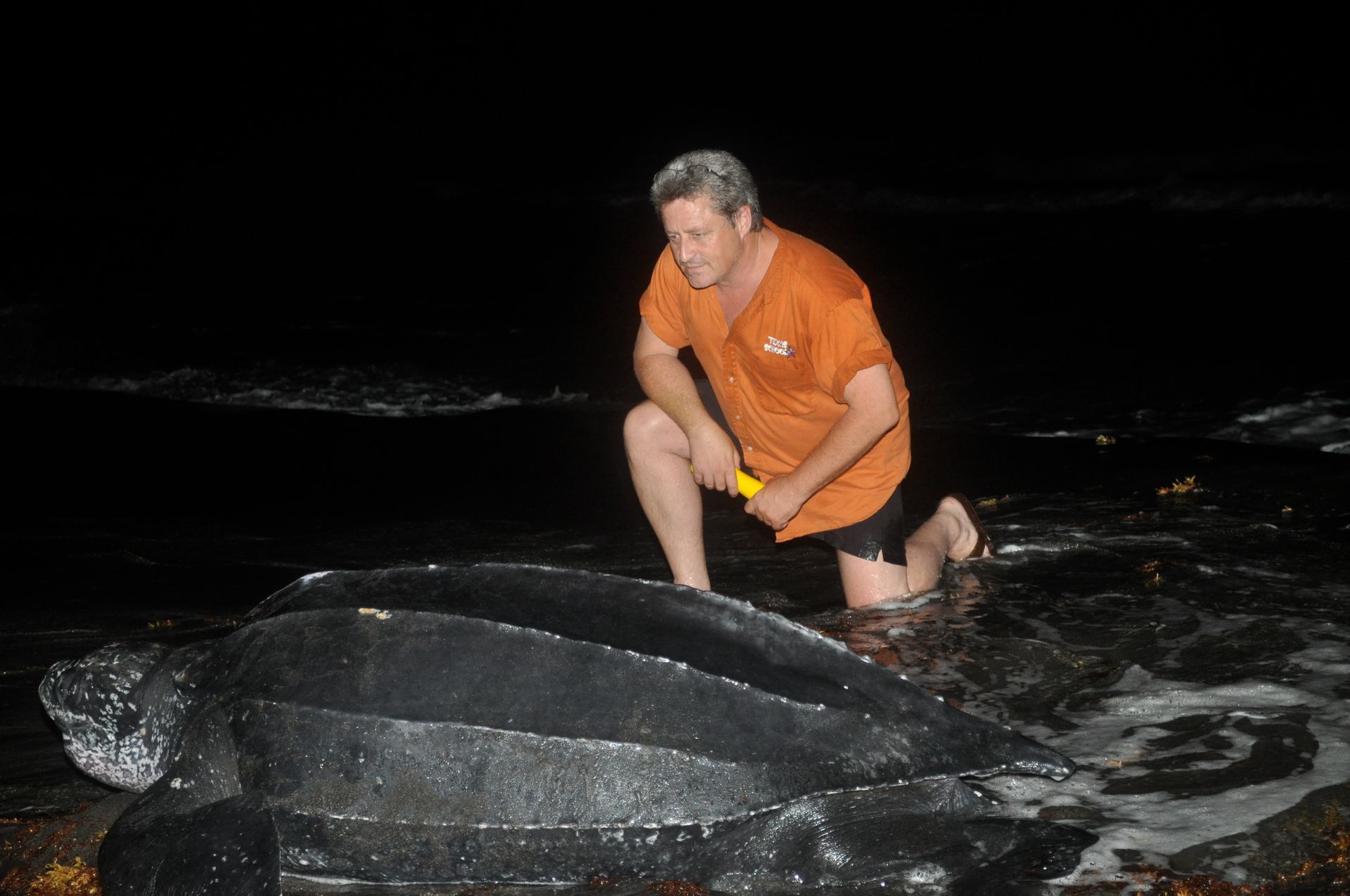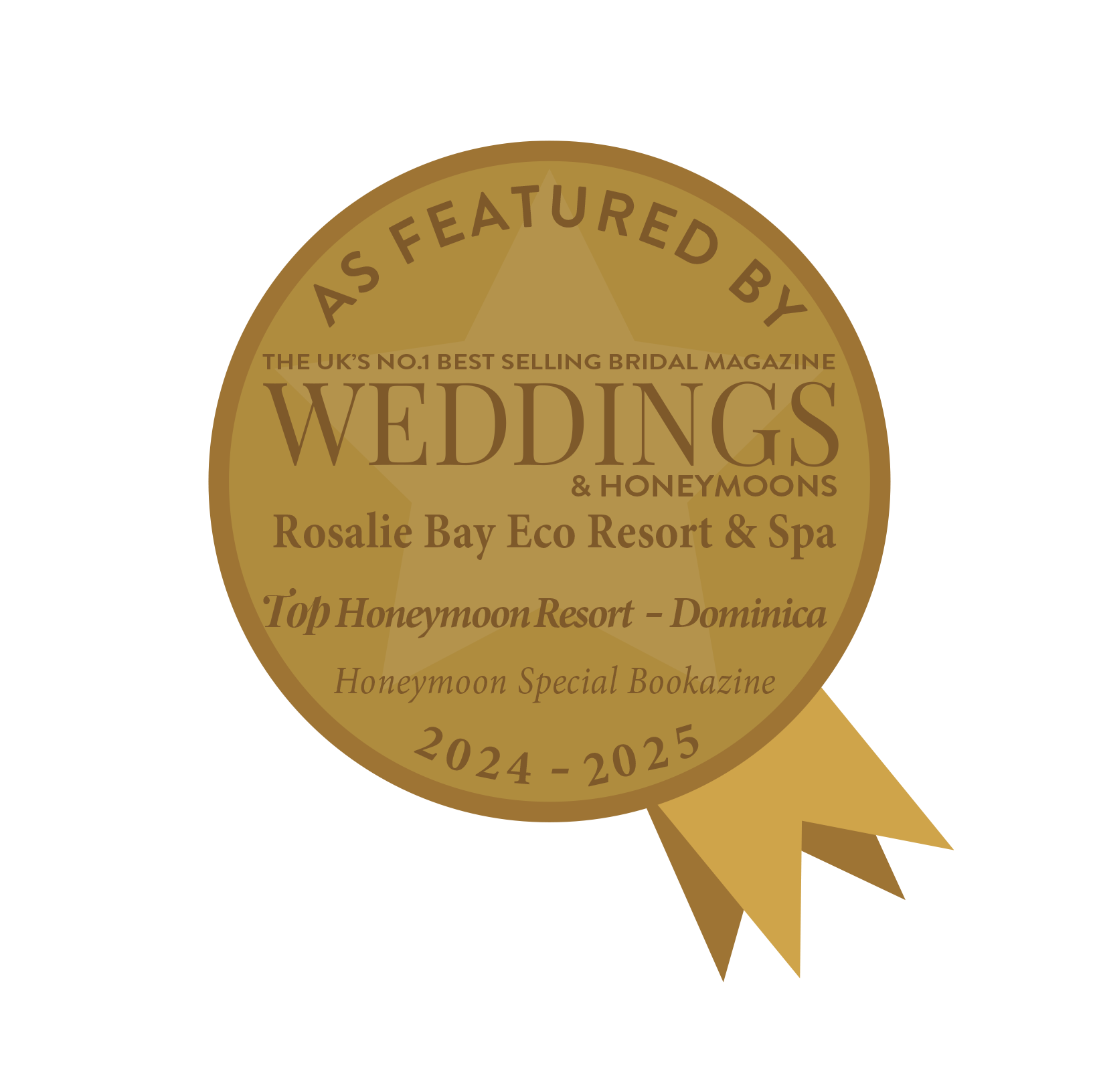Nature's Eco Retreat
our simply magical Eco-Resort on Dominica
﹀
Your Dominica Turtle Sanctuary
Escape to a simply magical Eco Resort on Dominica
Eco-Friendly Resort
Your turtle sanctuary in the middle of Dominica's stunning nature.
Amid the wilds of the Nature Island of the Caribbean, find peace at this resort in Dominica (not to be confused with the Dominican Republic). Strolling through our intimate, hand-built sanctuary, your stresses fade away. Time slows down, allowing you to reconnect with nature, yourself, and loved ones.
Experience the awe of watching endangered
sea turtles
nest on a black sand beach. Immerse your senses in unsurpassed natural beauty. Renew your well-being with organic cuisine and nurturing spa treatments. Escape to Rosalie Bay Eco Resort & Spa, your hotel in Dominica's stunning nature.
Our Hotel Rooms & Suites
Escape to a simply magical Eco Resort on Dominica
﹀
Testimonials
Read the real stories from real people
"Wonderful stay at a beautiful nature resort."
TripAdvisor
My family and I stayed at Rosalie Bay for 9 amazing and unforgettable nights. The resort is tranquil and blends perfectly with the beautiful natural surroundings. We stayed in a riverside suite, which was tastefully decorated, very comfortable, and huge. We loved everything about our experience at the resort, including exploring the Rosalie River, black sand beach, and nature trail, soaking in the warm freshwater pool, and eating delicious meals at the Leatherback Restaurant. The staff were all so warm and welcoming, and special thanks goes to Zahir, who drove us to and from the airport and was our guide for the incredible Victoria Falls hike! We will definitely stay at Rosalie Bay again when we come back to Dominica!
"This is a gorgeous Nature lovers' paradise."
It is breathtaking from the river leading into the Ocean to the Black sand beach. The sounds at night are ASMR divine! Alot of waterfalls within walking and driving distance. To sum it up, come and rejuvenate, relax, and refresh, and you won't be disappointed. Also, the food is awesome.
"Everyone was fantastic on this resort!"
Perfect get away. The area is gorgeous! Calm serene feel. Great breakfast included and the server staff were very good and accomodatimg! The front desk people are so gracious and lovely. We are gym people and thought the variety of equipment was very good!! A rack, cable machines, roman chair plus more! It is all about nature here! Very safe island. Friendly people! A special place in the world!
"Excellent place to stay!"
TripAdvisor
The resort was gorgeous and the rooms were fantastic overlooking the river. Food and staff were very nice and helpful. The best part was taking excursions with Zahir. We travel all the time and have never had such a wonderful guide. He was not only professional and knowlegeable about the island but a true pleasure to be with. He was fun and made our week the best ever!! We will actually miss his company. I feel like we made a true friend. Thanks for a great experience!
﹀
Rosalie Bay News
Stay up to date on our latest topics
